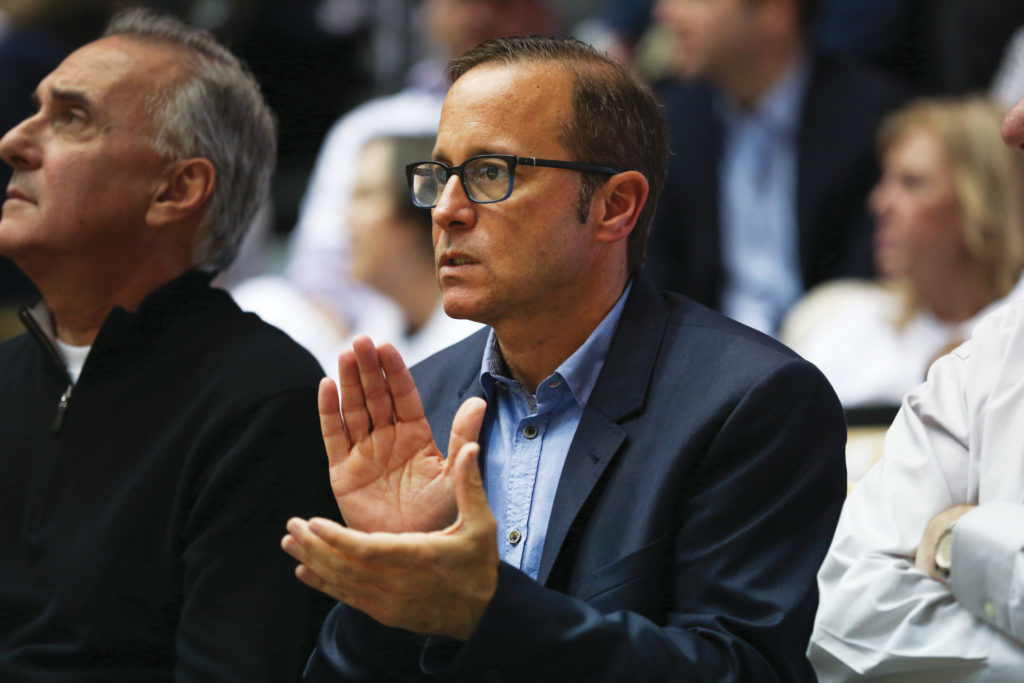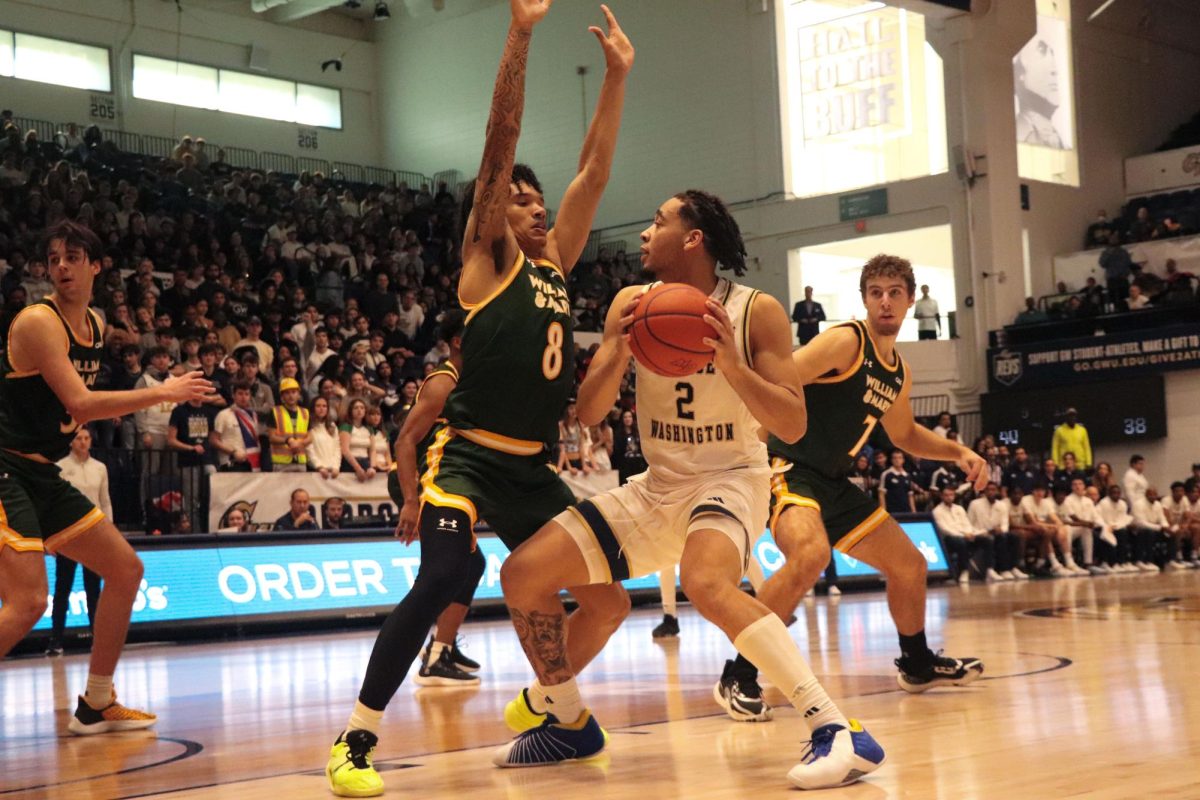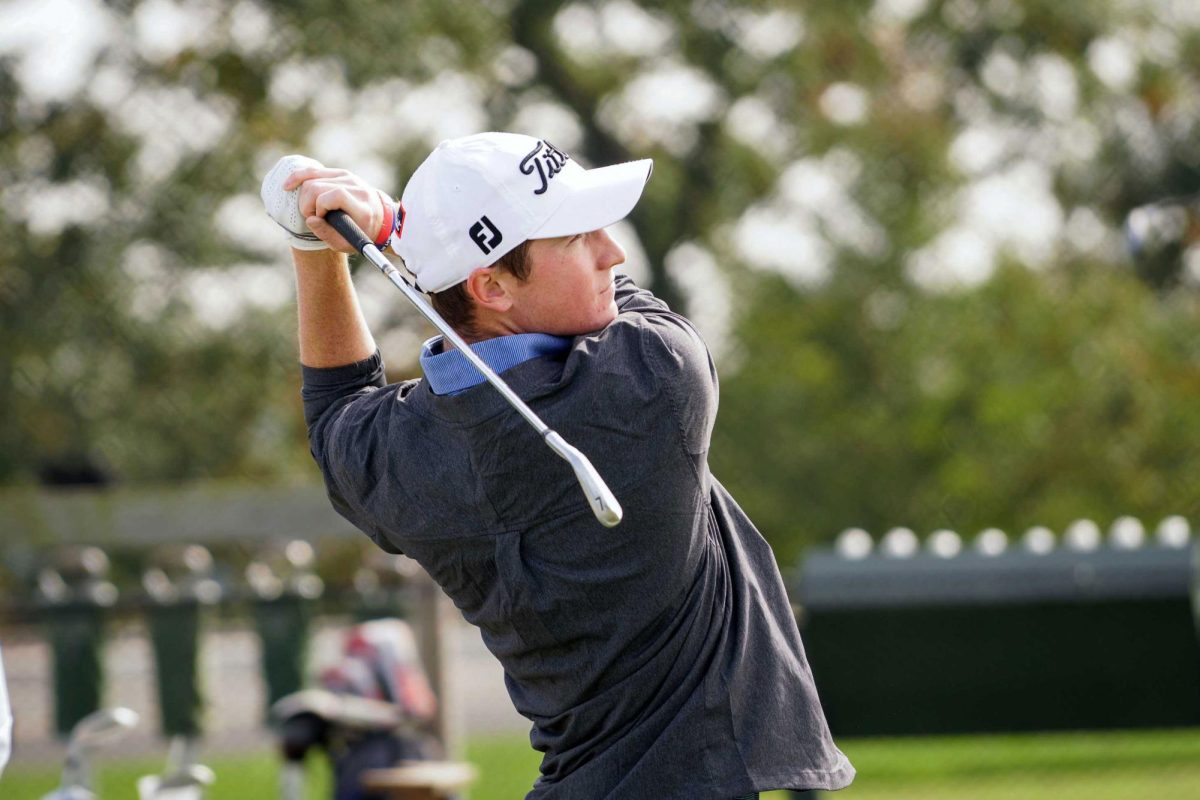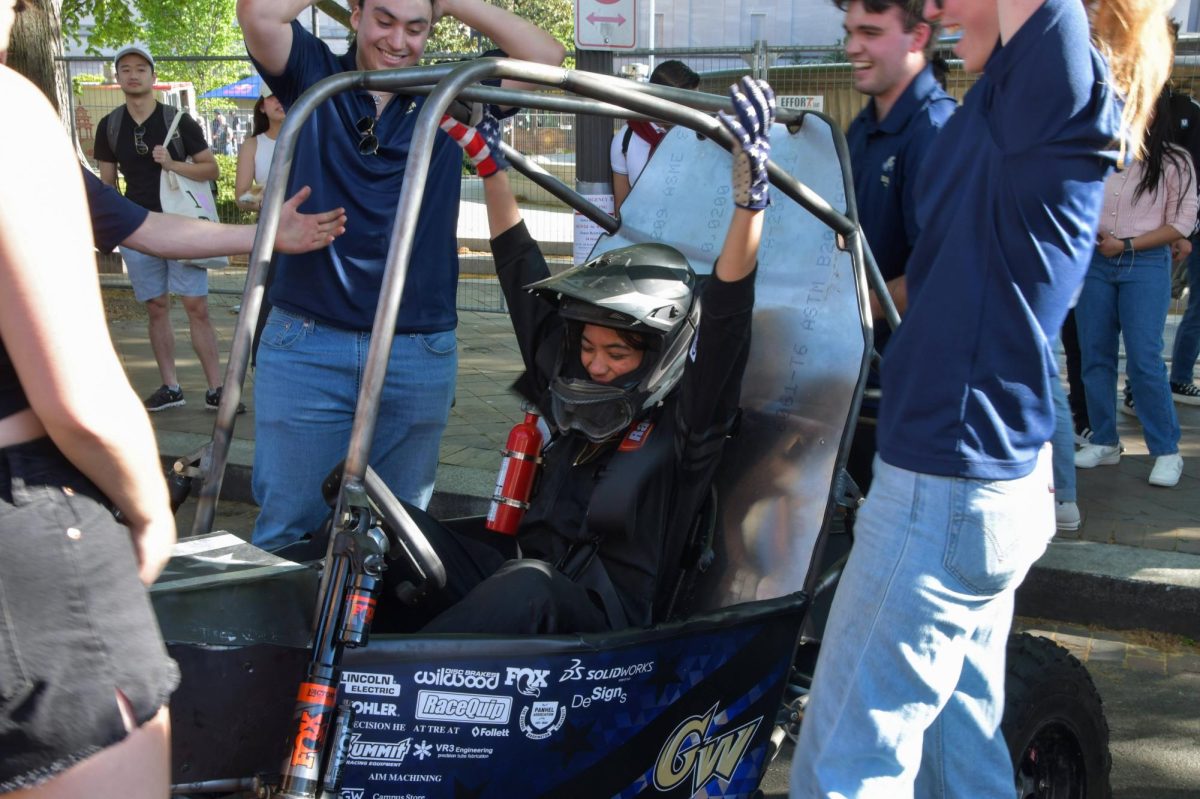Updated: Nov. 19, 2018 at 8:42 p.m.
After an article piling a slew of allegations on GW’s former athletic director surfaced – the University and athletic department have remained tight-lipped.
An article that sought to serve as an exposé of the athletic department was published by the national sports blog Deadspin Thursday and the department became embroiled in a controversy sparked by claims that former athletic director Patrick Nero acted inappropriately toward student-athletes, athletic department staff and recent graduates during his time working for GW.
Even as the 7,000-word article tracked more than 310,000 views and was shared widely on social media, the University and all the major players in the controversy have remained silent.
Athletic department spokesman Brian Sereno declined to answer more than 15 questions from The Hatchet posed to him and athletic director Tanya Vogel.
“The University takes seriously the safety and well-being of its students, including student-athletes, and it carefully and thoughtfully reviewed concerns raised in the past regarding its athletics program,” Sereno said in an email after the article was published Thursday.
Sereno also did not return a request to facilitate interviews with student-athletes and coaches who worked under Nero. Nero also did not return multiple requests to comment.
“We’re looking forward under excellent new leadership,” Sereno said in an email. “That is what our student-athletes deserve.”
University spokeswoman Lindsay Hamilton declined to comment on what the University’s role was in investigating Nero’s alleged misconduct and whether it would investigate the allegations further, deferring to Sereno.
In an attempt to confirm or deny the claims made primarily by anonymous sources in the Deadspin article, The Hatchet reached out to nearly 100 current and former student-athletes, coaches and other individuals close to the athletic department.
Most requests were met with silence that mirrored the University’s response, but those who were willing to speak had mixed reactions. Multiple current and former student-athletes, some of whom spoke under the condition of anonymity for fear of retribution, said Nero’s inappropriate behavior was often whispered about and caused problems for programs. But others celebrated the former athletic director and said the department’s silence was the product of a group that was “protective” of its student-athletes.
A mixed legacy
Nero, who spent six years leading the department after he was first hired in 2011, watched 13 programs win championships, expanded the department’s budget and was named an Under Armour Athletic Director of the Year less than a year before he stepped down.
When he resigned in December in the midst of basketball season – GW’s most celebrated sport – he said he was ready for the “next phase” of his career and officials touted his legacy.
A former student-athlete, who doubted allegations that some athletes received special treatment from Nero, said they found the article “disheartening.”
“My experiences with Mr. Nero were nothing but positive, so I really couldn’t relate to what was being said because of the positive influence he’s had on my life,” they said. “I know a lot of the people that were also student-athletes feel the same way.”
But Deadspin reported that Nero was under investigation for misconduct at the time of his sudden departure following allegations over the years that ranged from excessive drinking on a departmental trip to providing certain players “illicit benefits.” Anonymous sources quoted in the article allege that Nero provided athletes with dinners at his home and paid athletes, including 2016-graduate Kevin Larsen, when they visited his office.
Larsen said the allegations that he received payments and preferential treatment from Nero were “straight bullshit.”
“I felt the need to make sure the people at GWU who supported me and my teammates know that and there’s no truth to the allegations about me,” Larsen said in a Facebook message.
Isaiah Armwood, a 2014 graduate and Larsen’s former teammate, said Nero always treated him with the “utmost respect.”
“I didn’t really see it or I wasn’t involved, but in my eyes he was nothing but a professional,” he said. “Some may say otherwise, but he never treated me in a bad way.”
The article also included a video that depicts Nero straddling an individual the publication identified as a 2017 graduate while making a “V” shape with his fingers, holding them up to his mouth and sticking out his tongue. Screenshots of Snapchat posts were also published showing Nero at a bar with at least one former student.
“We’d all heard that one, the getting drunk with student-athletes,” former swimmer and 2017-graduate Liam Huffman said. “It doesn’t surprise me that he was. I’m not shocked by it because there were other rumors out there about him that were honestly a little worse.”
Deadspin also reported that Nero had been feuding with former men’s basketball head coach Mike Lonergan for years before Lonergan was ousted. Lonergan, who also declined to comment for this article, was fired in September 2016 about two months after The Washington Post reported allegations from current and former players that the coach was verbally abusive.
Tyler Cavanaugh, a former men’s basketball player, said on Twitter Monday that the way the University handled the conflict between Nero and Lonergan created “daily dysfunction” for his team. Cavanaugh said the program was “trending upwards” and he believes his NIT Championship team could have been more successful if it weren’t for the “lack of communication and uncertainty” from the athletic department.
“The disruptive and ongoing feud between Coach Lonergan and Mr. Nero jeopardized all of that and put a dark cloud over the men’s basketball program which is unfortunate for alumni, fans, former players and the GW community,” Cavanaugh said in a tweet.
Chris McManes, a friend of Lonergan, said he had heard many of the allegations about Nero reported by Deadspin, including that Nero paid student-athletes and was banned by former University President Steven Knapp from interacting with the men’s basketball team. McManes said Lonergan reported the behavior to the University and NCAA, but was still unjustly fired.
“Mike took steps he thought were necessary to protect the program and protect his players,” McManes said. “Instead of being fired, he should have been commended.”
Patrick Steeves, a former men’s basketball player, said Nero did not spend time with the team, which he heard was part of an “arrangement” between him and Lonergan. But when his coach abruptly left during his first months on campus, he felt blindsided and was frustrated with how the department communicated with athletes.
“I thought that the communication with the players and the whole way that the process went down – yeah it was poorly done,” Steeves said.
What the allegations could mean
Title IX and NCAA compliance experts said the allegations against Nero raised in the article potentially violate Title IX regulations, NCAA rules and demonstrate misconduct based on typical employee codes of conduct.
The article reported that Nero had invited athletes to his home for dinner, offered them “use of” his home and had “strange” social relationships with them.
Ben Dyson, the assistant athletic director for compliance at Oklahoma State, said socializing with student-athletes outside official athletic department activities is not “impermissible” according to NCAA rules – as long as students are not provided benefits during those interactions.
“You have to know exactly in these situations what the level of interaction was and what the benefits provided by the athletic director to the student-athletes were to know if it crossed a line or not,” Dyson said.
Alan Sash, a partner at the law firm McLaughlin and Stern who has worked on Title IX cases, said the other allegations reported by Deadspin, like drunken behavior in front of staff members and alumni, would fall under the umbrella of code of conduct violations regularly enforced by universities.
But Sash said sexual gestures or comments toward student-athletes – like Nero allegedly making inappropriate “personal comments” toward an internship applicant and making sexual gestures as depicted in the video published by Deadspin – would likely be considered Title IX violations because the misconduct is gender-specific.
Moving forward
Following a lack of response from GW, current and former student-athletes and experts said although Nero is no longer employed at GW, officials should be transparent and share the steps they will take to move forward after the controversy.
A former student-athlete, who spoke under the condition of anonymity, said in text messages that they heard whisperings of Nero’s inappropriate behavior, and the University’s silence falls in line with how it has handled other scandals in the past.
“Given some PR situations that I know of currently and in the past, they are very unprofessional and try to go the easy way out,” they said in a text message. “They don’t take responsibility for anything that comes about with the athletic department and want to brush a lot of stuff under the rug. If they continue to do this, things will catch up to them and bite them in the butt.”
A current student-athlete, who spoke on the condition of anonymity, said they don’t think it makes a difference that the department has new leadership because it is “poorly run” and lacks concern for athletes.
“There are much larger systemic issues within the athletic department which remain a problem,” the student-athlete said.
Jamel Donnor, an associate professor at the College of William and Mary who specializes in college athletics, said athletic departments typically favor keeping quiet on “scandals” that arise.
“It isn’t until there is real data and it’s not just an isolated incident,” Donnor said. “That’s typically when the university acts. But the official response is always to deny, deny, deny.”
Allegations of misconduct can be detrimental to a workplace so it is best for universities to publicly respond, he said, but appointing Vogel as athletic director, who formerly served as the department’s deputy Title IX coordinator, could “work in their favor” because she is well-trained should issues arise in the future.
“This hurts moral within the athletic department,” Donnor said. “It makes it hard to attract good people. I think it also makes it hard to retain good people.”
Joshua Gordon, the founding principal of the Sports Conflict Institute, said although the alleged activities transpired in the past, there has to be “honesty and transparency” in how the University handled the situation to move forward.
“Right now, GW has to decide, is it going to just play the PR game or is it going to actually look to transform its experience?” Gordon said.
Kerri Corcoran, Matt Cullen and Liz Provencher contributed reporting.
Editor’s note:
This post was updated to include athletic department spokesman Brian Sereno’s comment from Thursday. This post was also updated to include a comment from former men’s basketball player Tyler Cavanaugh.





